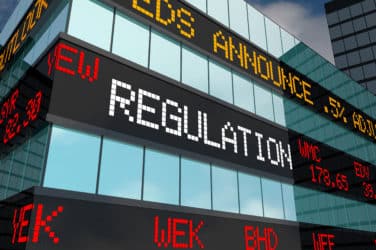EU Referendum: Why the City Must Have More Influence in EU Law Making (by Rob Boardman, ITG)
06.09.2016As June 23rd looms ever closer, there appear to be some misconceptions about how the City views its relationship with Europe. Although many institutions have rightly voiced support for the UK’s membership, there is widespread concern about the City’s strained relationship with Brussels, whose policy making on financial services is often very different from the views of finance practitioners.
Certainly a vote to leave would cause a headache for financial institutions in the UK, who currently rely on the “European Passport” to access customers throughout the single market. If the UK voted to leave, it could perhaps negotiate an alternative form of access, similar to Norway and Switzerland, but nevertheless its limited influence over EU policy would be reduced to zero.
This limited influence evident by the fact that London, which according to the Bank of England accounts for over 30 per cent of wholesale financial services carried out in the EU, has such little say on laws which are fundamentally changing the industry – and not always for the better.
The truth is that the City has been left frustrated by rhetoric that has dominated from both sides of the argument; and would prefer the debate to focus on the actual policies being implemented at a micro level. For example, Europe has recently rubber stamped laws which place limits on trading shares away from traditional stock exchanges. Caps on these venues, more commonly known as dark pools, could restrict an investment manager’s power to deliver returns for investors.
After all, the original point of these venues was to provide an alternative way to trade blocks of shares without market impact. Under the new laws, there will be caps of 4 per cent for individual dark venues and 8 per cent across all venues in Europe (with some exceptions for block trades). If these caps are breached, the stock cannot be traded on that venue for six months.
Clearly, whichever policy maker has decided on these caps is unlikely to have traded before. The thresholds are too small, particularly for large-cap stocks. If a trader attempted to send a large order to a lit exchange, the price of the stock could be hit significantly. These caps also prove that many policy makers fail to understand the demand among pension funds and mutual funds for dark trading – which increased in value (45 per cent) and volume of shares traded (25 per cent) last year.
While very specific, these caps are symbolic of exactly what’s wrong at the heart of the City’s asymmetrical relationship with Brussels. The approach is not to suggest watered down measures in the hope that everything will stay the same, nor is it to cut links completely between London and Brussels. A balance needs to be struck. If the City wants to shift the debate in its direction, it must start building alliances with the EU and the Commission.
Easy to say in theory but as the prime minister found out during his “renegotiation efforts” – it’s much harder to do in practice. An initial step is for all involved to put ideological differences to one side, and acknowledge the roles each other play. Brussels must first understand the value that London has created for the economy, enterprise and its vast contribution in taxes to the exchequer. Conversely, there is a duty within the City to understand its place in the wider world. It is only right and proper that policy makers require a higher standard of governance, but the majority of people in the City also think this.
From the big bang of the 1980’s to the dark trading boom of the past decade, history suggests that the City performs best when it is liberalised. Regardless of the final outcome, an innovative City is imperative for Europe to remain a key global financial centre. Ideological beliefs underpinning the debate so far need to be replaced by economic pragmatism. Only when the City starts having a say on policy creation commensurate with its economic importance and Brussels stops trying to micro manage it – will we know that progress, both economic and political, has been made.






